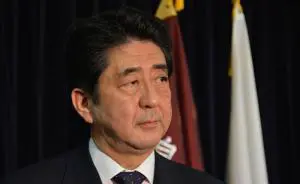(People's Daily Online) So far, Chinese leaders have attended all the previous G20 summits, through which China supports international financial sectors to increase their fund-raising capability, to intensify their assistance to developing countries affected by the world financial crisis.
China also advocates more representatives from developing countries join international financial organizations in order to push forward the latter’s reform toward an open world economy through the establishment of an intensified supervision system.
A number of global issues, including anti-terrorism, food safety, energy safety, economy and financial security, have emerged continuously. It has become an irresistible trend to strengthen international governance. China has insisted that the global management system needs to reflect the desires and interests of most of the countries in a more balanced way.
Figures from the International Monetary Fund (IMF) showed that the developed countries accounted for 61.9 percent of the global economy in 2012, compared to 83.6 percent in 1992, while the non-Western economies share of the global pie increased from 16.4 percent to 38.1 percent during the same period of time.
As a result, international financial bodies like the IMF and World Bank should reflect the changes in the world and see the necessity and inevitability of increasing the deputation and voice of the emerging economies and developing market.
However, as the IMF’s quota reform plan is yet to materialize, it is obvious that Western countries have long been enjoying the dominant position in global affairs. Loopholes in their domestic decision making in some Western countries also barricade the systematical transition in global management.
China pays high attention to the Antalya summit by expressing its intention to facilitate the growth of the global economy, strengthen international management and accelerate the transformation of economic reform. In 2015, China has submitted 10 key commitments, involving aspects of transforming the economic growth pattern and the reform of financial sector.
Early in November, Chinese President Xi Jinping announced China’s major targets of the Hangzhou summit in 2016; First, to achieve a positive consensus and take concrete actions in handling the prominent problems and seeking long and stable increase in the world economy. Second, to improve mechanism of the G20 as a major economic cooperation platform for fairer, more inclusive and efficient world economic management. Third, to express signals of cooperation among G20 members by sticking to the principle of dealing with divergences through mutual understanding and respect.
 简体中文
简体中文

